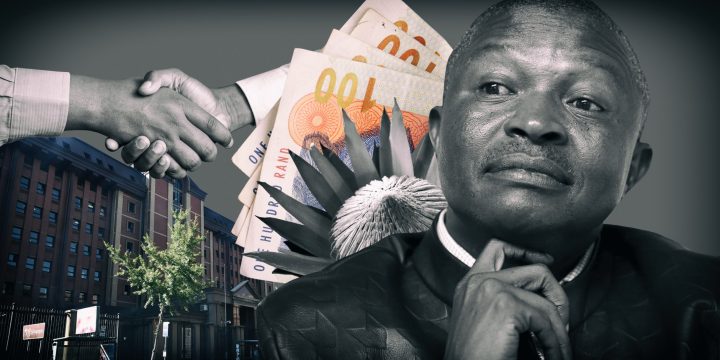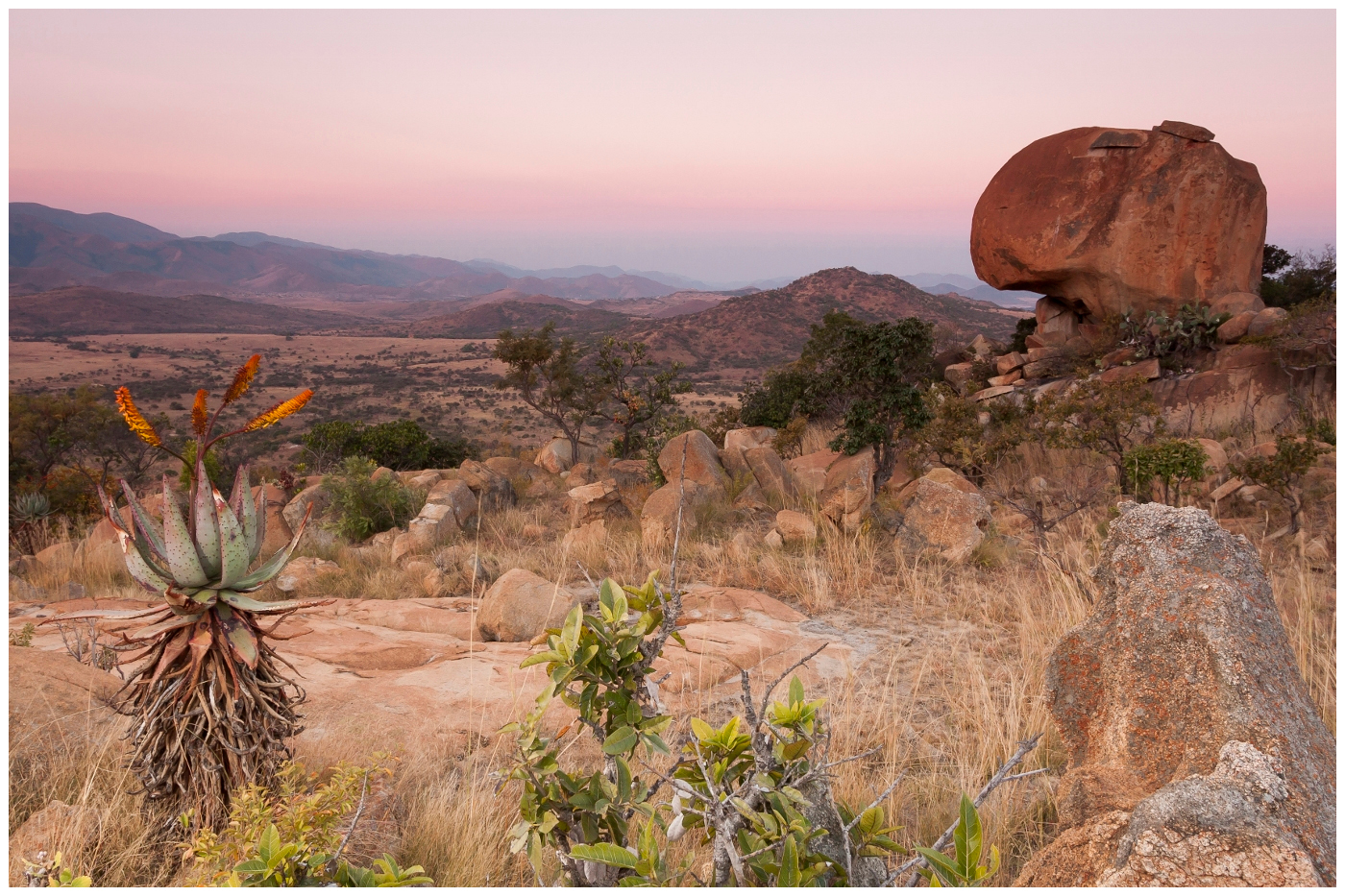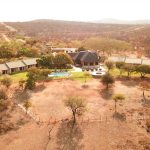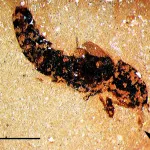OUR BURNING PLANET
Dead Matter (Part One): How political corruption decimated Mpumalanga’s biodiversity

In the first of this three-part series, Daily Maverick begins to outline the circumstances that led to the R1bn damages claim brought by conservationist Fred Daniel against the Mpumalanga Tourism and Parks Agency and a host of government entities in 2010. Due to kick off in July 2021, the case may turn out to be the most significant civil matter yet heard by the North Gauteng High Court – not because the name of South Africa’s deputy president, David Mabuza, is all over the plaintiff’s papers, but because the future of one of the planet’s most threatened biomes is at stake.
In the spring of 2008, on Charles Ndabeni’s first day as chief executive officer of the Mpumalanga Tourism and Parks Agency, he was well aware that he had inherited a pair of unprecedented and game-changing problems.
The bigger one, by his reckoning, was that the province’s world-renowned biodiversity, which had been protected by a succession of South African governments since 1898, was in steep and alarming decline.
The second was that tourists were no longer arriving in droves at the gates of either the Kruger National Park or the Blyde River Canyon, the major destinations in what had recently become a UNESCO International Man and Biosphere Reserve, and that there had been a marked drop in visitors to the province since 2003.
By any objective measure, Ndabeni was the perfect man for the job. In August 2011, when he would resign before the termination of his five-year contract, the proof of his mettle would be found in the fact that Mpumalanga had just been ranked the third most-visited province in the country, from an all-time low (back when he had started out as CEO) of seventh place.
But a chain of events had been set in motion in the early months of Ndabeni’s tenure that would eventually render his position at the agency untenable.
It all began on the morning of 13 November 2008, when the sheriff of Nelspruit came by for an official visit. The sheriff brought with him copies of a letter of demand, prepared by the Hoedspruit-based firm of attorneys Steyn and Clarke, that accused senior members of the MTPA staff of serious fraud and misconduct.
Ndabeni, caught by surprise, immediately initiated a process to decipher the contents of the letter. He soon discovered that Steyn and Clarke’s clients had been involved in ongoing litigation with the MTPA, and that two high court orders had already been granted against the agency. Since he did not have the benefit of a consolidated handover report from either of his two predecessors, Ndabeni called his entire staff together to request a separate report from each department.
What he would find, according to an affidavit that he would submit to the North Gauteng High Court in May 2020, was that there had indeed been “various instances of fraudulent and illegal activities, breaches in legal compliances and the ultra-vires exercise of power by senior staff”.
Convinced of the truth of these findings, he wasted no time in reporting them to the members of the MTPA board, who acceded to his request for the appointment of a legal compliance officer.
Like Ndabeni, advocate Shukrat Makinde — the woman who would serve as chief governance and compliance officer of the MTPA from 2009 until 2013 — would submit a series of affidavits to the North Gauteng High Court, all to do with the matter of case number 34802/2010.
Unlike Ndabeni, however, one of her affidavits would refer at the top to the primary antagonists in the case, the businessman-turned-conservationist Frederick Coenraad Daniel and the ANC politician David Dabede Mabuza.
In the book that she would release in October 2020, Predator Politics: Mabuza, Fred Daniel and the Great Land Scam, journalist and writer Rehana Rossouw would do a peerless job of explaining how and why Mabuza — who would become deputy president of South Africa in 2018 — came to view Daniel as his “public enemy number one”.
She would note how the years 2008 and 2009, when Ndabeni and Makinde were just beginning to get to grips with the rot at the core of the MTPA, were for Daniel two of the most traumatic years of his life.
It was during this time, according to Daniel, that Mabuza phoned him personally to persuade him to accept the “false land claims” on his private game reserve, failing which “[his] safety could not be guaranteed”.
It was also during this time that Mabuza had allegedly organised a violent demonstration on Daniel’s property, promising the rent-a-crowd that they would “get their land back”.
And yet, as thorough as Rossouw’s book would turn out to be, there were still thousands of pages of written testimony that she would not be able to include, mostly because case number 34802/2010 — the R1-billion damages claim Daniel and his various businesses had brought against the MTPA and a host of government entities in 2010 — had grown in size and import to become one of the most significant civil matters in the history of the North Gauteng High Court.
Also, when Rossouw’s book went to press, it was still expected that the case would go to trial over 25 days in July and August 2020. But at great cost to Daniel and the South African taxpayer, the postponements were fated to continue.
The question for Daily Maverick, given the almost daily additions to the court records since the publication of Predator Politics, was whether it was “fate” that had pushed the trial date out to 19 July 2021, or whether there was something more nefarious at play.
Was Daniel, as alleged by his advocate Jacques Joubert, being denied his section 34 right to a fair public hearing? More to the point, in light of Mabuza’s prominent role in case number 34802/2010, what did the deputy president stand to lose if the matter ever went to trial?
As large as these questions were, though, they appeared during the course of our reporting to be backgrounded by an even larger one — what damage had been done to South Africa’s natural heritage by the culture of corruption that had taken over the MTPA?
Here, Ndabeni’s affidavit laid out the loss in stark and frightening terms.
After detailing how members of his staff had worked systematically to block Daniel’s vision for Nkomazi Wilderness, the private reserve that the businessman had launched with his own funds in 1999, he highlighted the environmental riches of the territory.
The Barberton Mountainlands, Ndabeni testified, where Daniel had staked out his reserve, ranked second only to the Cape Floral Kingdom in terms of South African biodiversity.
“On top of this,” he added, “the grasslands that… formed part of the Nkomazi Wilderness [are] not only the most threatened biome on Earth, but in terms of all the important official government planning studies… created a legal obligation for [the MTPA] to assist the project as a matter of priority.”

Nkomazi Game Reserve in Mpumalanga. (Photo: Flickr / David Olsen)
The exact location of his new residence, Daily Maverick was asked, was not to be disclosed. Daniel had moved out here with his wife and young son in early 2019, after the death threats and the financial losses had become too much to sustain, and now instead of the 39,000ha of derelict farmland he had restored to endemic wilderness — with its pristine rivers, rich flora and abundant game — he was surrounded by layers of electrified fencing and a pack of skittish dogs.
On this particular Friday afternoon in late November 2020, Daniel was hard at work, moving seamlessly between preparation for the trial and articulation of the lost, but not forgotten dream.
“The only way we are going to save ourselves,” he said, his eyes looking up for a moment from the pair of computer screens he had set up for ease of navigation through his prodigious files, “is if we take people like EO Wilson very seriously.”
By this, Daniel was referring to the great evolutionary biologist’s “Half-Earth Project”, a spin-off of the 2016 international bestseller in which an “achievable plan” was put forward for the safeguarding and regeneration of the planet’s imperilled biosphere: devote half of the terrestrial surface of the earth to nature.
Indeed, on the Half-Earth Project website, where the names on the advisory council read like a user’s guide to interdisciplinary collaboration — the economist Jeffrey Sachs alongside the naturalist Robin Kimmerer, for instance — the concepts bore an uncanny resemblance to the driving philosophy of Daniel himself.
“The crucial factor in the life and death of species is the amount of suitable habitat left to them,” Wilson’s website noted. “As reserves grow in size, the diversity of life surviving within them also grows. As reserves are reduced in area, the diversity within them declines to a mathematically predictable degree swiftly — often immediately and, for a large fraction, forever.”
But again, for Daniel, this was much more than just theory. Since 1998, when he had acquired his first 916ha of farmland from a Badplaas landowner, he had dug intuitively and progressively into the secrets of the local ecosystem, until one day its latent regenerative capacities began to reveal themselves.
A big year for the project was 1999, when Daniel commissioned Prof Wouter van Hoven, director of the Centre for Wildlife Management at the University of Pretoria, to oversee a “preliminary ecological evaluation” of Nkomazi’s natural wealth. The 156-page document, which was completed when the land under review had grown to 6,204ha, opened with an ingenious management plan for what was termed the “enormous” plant diversity.
Van Hoven and his team divided the area into six homogenous units, running from the aloe-dominated mountainsides to the acacias of the woodlands to the proteas of the grasslands. Next came an assessment of veld conditions for the introduction of grazing herbivores, with an acknowledgement of the damage that had been done by the previous owner’s cattle.
Although the area was primarily grassland, the report recommended the introduction of a limited number of browsers — given that “in the long term” the absence of the latter would upset the ecological balance.
Finally, before outlining a veld-burning regime, the report went on to detail which animals would be best suited to Nkomazi Wilderness. The list was long and distinguished, including buffalo, leopard, white rhino and “rare species such as roan antelope”.
Daniel studied the report closely, taking it to heart, picturing the herds in his mind’s eye as he drove the veld in his Land Rover. With the experience of the tourist as a major priority on his agenda, he personally oversaw the course and grading of the roads — following the natural contours of the land, augmenting the perspectives on the rivers, valleys and mountains.
One day, while out on his daily reconnaissance drive, he came across a beautiful piece of San rock art beneath a granite overhang. This would be the first of many such finds, and each would serve for Daniel as a personal “letter” of instruction.
“The thing was,” he recalled for Daily Maverick, “by looking at the San letters, we could see what animals to reintroduce. Wouter was talking scientifically and the San were talking historically. I don’t think anyone has ever linked them.”
And so in 2000, after Daniel had acquired the farms Belvue and Doyershoek, adding 1,973ha of mountain terrain to Nkomazi Wilderness, the list of game got longer.
Burchell’s zebra, blesbok, blue wildebeest, mountain reedbuck, oribi, red hartebeest, waterbuck, sable — all of these were recommended in Van Hoven’s second report, with a number of them mirrored in the ancient paintings on the rock walls.
In 2001, Daniel commissioned a geomorphological investigation from Van Hoven, which focused on the erosion status of the land. There was no report for 2002, but in 2003 he received a letter from the consultancy group International Conservation Services, which stated — following a site visit — that “sensitive and active management” could result in a game experience that was “pretty much unique in the agglomeration of species”.
The emphasis was on the potential for introduction of the “Big 5”: such a thing was possible, according to the consultants, although it would require “substantial financial input and ecological expertise”.
And these two assets, it so happened, Daniel had in spades. In 2005, when the size of Nkomazi Wilderness had expanded to 21,075ha, Van Hoven submitted a 255-page report.
“When predators are stocked in areas that are large enough to support them, they play an important ecological role of eliminating the sick and wounded animals,” the report noted on page 195. “However, in many cases, wildlife ranches are too small and the introduction of carnivores poses problems.”
Three pages later, after noting that the best management practice for predators was “no management at all” — any interference, suggested Van Hoven, would disturb nature’s in-built equilibrium — the report stated the following: “Nkomazi Wilderness is large enough and can sustain prey numbers to feed predators.”
It was EO Wilson’s “Half-Earth” concept in a nutshell, more than a decade before the evolutionary biologist would publish his book and a whole 14 years before the United Nations — through its intergovernmental biodiversity platform — would begin to properly panic about the collapse of the natural world.
In this context, ironically, it was the intention to introduce lions that would accelerate Daniel’s undoing. Although he didn’t know it at the time, there was a faction within the MTPA that wanted the businessman gone. And somehow, the evidence that he would gather would implicate Mabuza. DM




















 Become an Insider
Become an Insider
Is it just greed or is it ANC policy to destroy the environment ?
Greed is ANC policy.
Spot-on!
Just blind, uninformed greed led by the mentality of a teenager in heat…..
“And these two assets, it so happened, Daniel had in spades.” I know what you mean but you will have to be less obtuse if the general population is going to get the gravity of this important series. I know you know this stuff but the rank and file reader need more hooks than your writing gives.
I’m not familiar with this specific case. If this is mostly factual it simply shows that the ANC government has no idea of the importance of biodiversity conservation! There are many other examples where “government” is letting us down. We have excellent legislation but implementation is woeful.
Love it when DM gets to dig in. As depressing as this story maybe it isn’t over yet and I appreciate the lengths you are going to tell it.
Also worth pointing out that people like Charles Ndabeni, who from this account seemed to champion both good governance and smart strategic government action, are also often deeply committed ANC people too. It’s worth remembering that the good guys seldom have any reason to be in our news feeds…
Must get the book. Really appreciate DM’s three part series – thanks to Kevin Bloom too. Biodiversity is key to our survival and conservation is in dire straits ….
“Half Earth” will never happen. Africa’s population is INCREASING by 30 million every year (and that increase is increasing – see United Nations population forecast). There may be the space for “Half United States”, but human pressure means that natural areas will decrease in Africa, not increase.